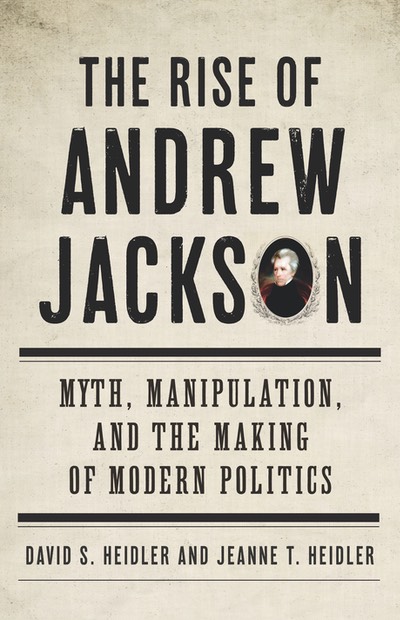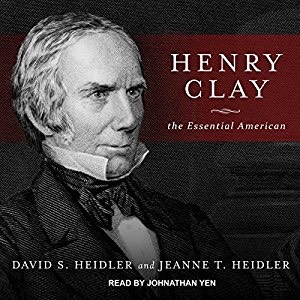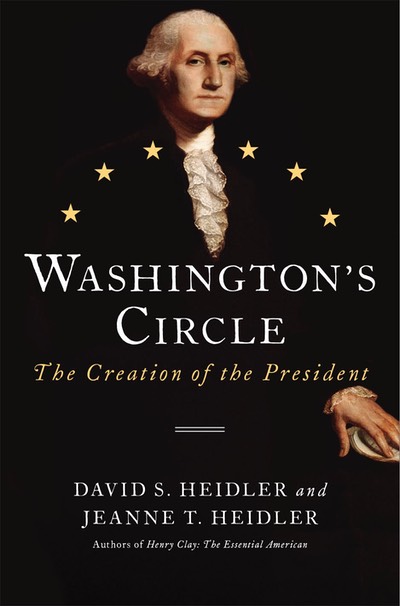A Memorial Day Remembrance
The British captain arrived under a flag of truce. At forty, he was likely older than the Americans were expecting, but John Montresor was from an aged military tradition and a venerable military establishment. He was the chief engineer of General Sir William Howe's army, currently occupying the city of New York below Harlem Heights. Howe wanted to arrange a prisoner exchange, and that was the reason for Montresor's errand. But he had other news as well.
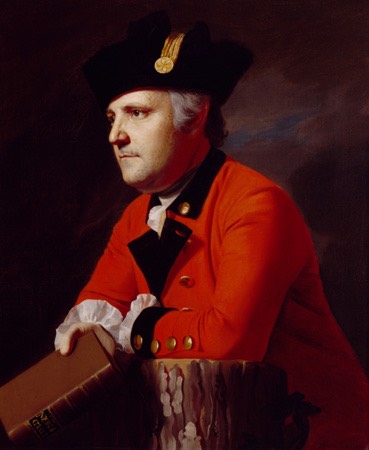
John Montresor
A small delegation of Americans went out to meet him. Two captains were among them, Alexander Hamilton from His Excellency General George Washington's staff, and William Hull of Knowlton's Rangers. The Rangers had been in the thick of the fight at Harlem Heights six days earlier and had suffered many casualties, their commander Lt.-Col. Thomas Knowlton among them, but the British had likely captured some of them as well, which explains Hull's presence in the delegation. It was fortunate he was there.
Montresor conducted his official business and then paused and appeared uneasy. The Americans correctly sensed they were about to learn something unpleasant. The British officer spoke slowly. A member of the rebel army, he said, had been hanged that morning as a spy. He was a very young captain — Montresor might have glanced at Hamilton and Hull, one at nineteen and the other at twenty-three — and had been captured only the night before but was denied a trial because papers he carried suggested he was a spy. When questioned, he had freely admitted that he had spent several days making sketches of British fortifications and gauging the army's strength. Howe had sentenced him to hang at dawn, so he had to spend a sleepless night in the greenhouse of the James Beekman mansion, the opulent home Howe had commandeered for his headquarters.
For some reason, Montresor had felt incredibly sorry for this lad and, in only a few hours, had adopted a sort of fatherly bearing toward him. The calm manner and unfailingly pleasant demeanor were impressive, considering the circumstances, and suggested that he came from something rather fine. As the saying had it, he was quality folk, and Montresor was embarrassed to relate that the provost marshal, a sadistic jailer named William Cunningham, had treated his prisoner, condemned as a treacherous spy, most callously. He had denied the boy's request for a clergyman and then had relished denying him a Bible.
Montresor's voice grew husky as he told about that morning. Cunningham wasn't ready to do the killing at dawn, so the hours passed with the prisoner standing under guard waiting to die. Montresor used his authority to get the lad out of the sun, bring him to his tent, and provide him with a pen, paper, and ink to write a couple of letters. The young man's gratitude for the gesture and their brief talk had made the hardened old soldier incredibly sad. Finally, at 11:00, they shuffled the boy to a makeshift scaffold near the artillery park overlooking the East River at Turtle Bay, near the Beekman house. There a noose had been slung over a sturdy bough of a tree.
There was no ceremony and no prayer. Montresor did not tell about what his listeners could imagine: jeering taunts from the collected soldiery and guards and likely Cunningham tersely barking at the boy to recant his rebel ways and express regret for his injury to the King. Instead, the British officer paused and closed by saying that he had been close enough to hear the lad's last words, which he vividly recalled and repeated now for his frowning audience. All of them recognized the source as Joseph Addison's famous play Cato, but they, like Montresor, were moved by the doomed boy's elegant paraphrase.
Finally, Montresor said when he learned that Cunningham had destroyed the two letters hastily penned in his tent, he resolved to let someone know about the event, at least so the lad's mates could tell his family, his sweetheart, his friends. Quality folk shouldn't have to wonder, not to know and having to wonder, well, not right. Montresor told them the boy's name. Everyone stood silent for a moment. "Right, then," said the captain as he turned and moved away in the darkness.
As we say, it was a fortunate accident that Captain William Hull was among the group of Americans who heard this sad tale. He alone among them had known Nathan Hale. Indeed, Hull had tried to talk Hale out of the damned-fool nonsense of going behind British lines. He would never forget how Hale had looked steadily at him, his expression pleasant, his blue eyes thoughtful. Hale had promised he would think more about it, but Hull had been touched as well as troubled when Nathan Hale quietly said, "I want to be useful."
The Orderly Book for September 22, 1776, Reporting Nathan Hale’s Execution
The last paragraph says, “A spy for the Enemy (by his own full confession) apprehended last night, was this day Executed at 11 o Clock in front of the Artillery Park."
When the British killed Nathan Hale on the morning of September 22, 1776, he was twenty-one years, three months, and sixteen days old. Except for his death, his life was an uneventful span marked by flawlessly fulfilled duties and kept pledges. The Hales were old New England, all Massachusetts folk. However, Richard Hale set up a farm in Connecticut, married a daughter of the prominent Strong family, and commenced to sire a prodigious family that he and Elizabeth Hale taught to fulfill obligations and keep promises. Nathan was the sixth of ten children and grew up unspoiled. His mom died when he was twelve, but the step-mother who soon came into the house was a good soul. Nathan accepted her right away and grew to love her for her kindness.
Captain Montresor was correct in judging these as quality folk and perceptive about Hale's education. At age fourteen, he entered Yale, and graduated about the middle of his class four years later. He was eager to satisfy his father's wish that he become a clergyman, but his college years were full of lighthearted moments and cheerful friends. Hale was an exceptional athlete and developed a broad-shouldered physique that, along with an engaging manner, made him popular at parties where New Haven belles batted eyes while portly matrons sighed over his smile.
After college, Hale worked off debt by becoming a school teacher at prestigious academies whose directors were impressed by his knowledge and came to admire his rapport with students. His voice was even, steady, and somewhat mesmerizing to young ladies who, hearing it, sometimes giggled, but usually blushed. Parents noticed that their daughters were never late for school.
The news about fighting between Minutemen and British soldiers at Lexington and Concord ignited all of New England, and Hale would have joined other sons of Connecticut in a rush to enlist. But his promise about the church and his contract with the academy held him back for a time. He asked his father's permission to postpone the pulpit, and by the time the mail brought Richard Hale's consent, only two weeks remained in the school year. "My quitting a few days sooner," wrote Hale to his employers, "I hope, will subject you to no great inconvenience."
Nathan Hale enlisted in Company 3 of the 7th Connecticut. His education merited a lieutenancy, but he never did more than march men in reviews.
In one of the ironies of his story, Hale was never in even a skirmish. He was too late for Bunker Hill and thus saw no fighting at Boston. Instead, he was part of the American siege during the winter of 1775-1776. The duty was tedious, to be sure, and several men of the 7th Regiment decided not to renew their enlistments. Hale convinced them to stay by dividing his pay among them for a month. For such leadership, he became a captain in January, and his regiment's strength merited incorporation into the Continental army as the 19th Foot.
After the British evacuated Boston in March 1776, General Washington took the army to New York City in anticipation of a British invasion. Tedium again set in as the British took their time to appear. In July, though, General Sir William Howe assembled an irresistible force on land at Staten Island and his brother Admiral Sir Richard Howe a massive fleet on the waters around it. On August 27, the brothers Howe unleashed an assault on the Continental Army at Long Island. It was so devastating that Washington barely saved his force by evacuating it to Manhattan. The 19th Foot was held in reserve during the action, making Hale merely a witness to it.
The terrible thumping on Long Island shattered Continental morale and left George Washington dazed and desperate. Howe, who could have possibly ended the American Revolution with a determined push, inexplicably paused, however, and Washington wanted to use the time to discover British strength and possible points of assault across the East River. A newly organized company of rangers — special forces detached for quick maneuver and ad hoc fighting — had been placed under Lt. Col. Thomas Knowlton, a Connecticut man, who drew the 150-man force from his state's regiments. It was how William Hull and Nathan Hale wound up in Knowlton's Rangers. Hearing that that General Washington was asking for a volunteer to go behind British lines and gather information, Nathan Hale raised his hand.
Hull was horrified and tried every argument he knew to keep Hale from taking on this mission. Spies were the dirtiest and most treacherous sort of people, Hull said, degraded in reputation and despised by their employers as well as their enemies. Besides, Hale had no experience with skulduggery, and the face that was an open book was also the kind that people, especially women, remembered. They had been on Long Island for five months. Someone would remember him, and he would be too honest to lie his way out it.
Hale listened, but his mind was made up. He had been the army for a year, collecting its pay and eating its food all the while. "I want to be useful," he said. William Hull had a sinking feeling.
On or about September 12, Nathan Hale left the American camp with a letter authorizing any vessel he could find to take him across Long Island Sound and drop him off in the British encampment. Accordingly, he traveled to Norwalk, Connecticut, and on September 15 boarded the armed sloop Schuyler, changed into a plain brown suit, donned a broad-brimmed hat, and invented his cover: he would pose as a school teacher looking for employment. He even took his Yale diploma as documentary proof of his trade. Nathan Hale disembarked on the Huntington shore after an uneventful crossing.
It was his last bit of luck. When Nathan Hale was on Long Island Sound, General Washington decided to abandon the city of New York and fall back to Harlem in the northern part of Manhattan. That decision made Nathan Hale's mission irrelevant just as he was starting it. Cynics take this as a starting point to criticize him as a hapless bumbler, out of his depth in a business he knew nothing about and too naïve to realize it. He became, they carp, a sort of American Clouseau playing out a farce that would have been a comedy of errors, if he had survived it.
True enough, nobody in authority on the American side seems to have remembered sending him behind British lines. At best, only a few people, Hull especially, might have recalled that there was a kid named Nathan Hale on a fool's errand, a dangerous task without any real purpose.
We have no idea what Nathan Hale did for the six days after his landing until his capture. But his already fragile luck turned lousy on September 21, when a catastrophic fire destroyed almost a third of New York City, and the British blamed rebel arsonists. A broad net led to the arrest of anybody who looked marginally suspicious, and that was how Nathan Hale was scooped up, searched, and found out. Montresor said he had drawings and memoranda, which indicates he had fulfilled his mission and was ready to come home. Instead, he was nabbed on suspicion of something he had not done. When he then told the British what he had been doing, Howe, already furious about the fire, didn't think twice about killing him.
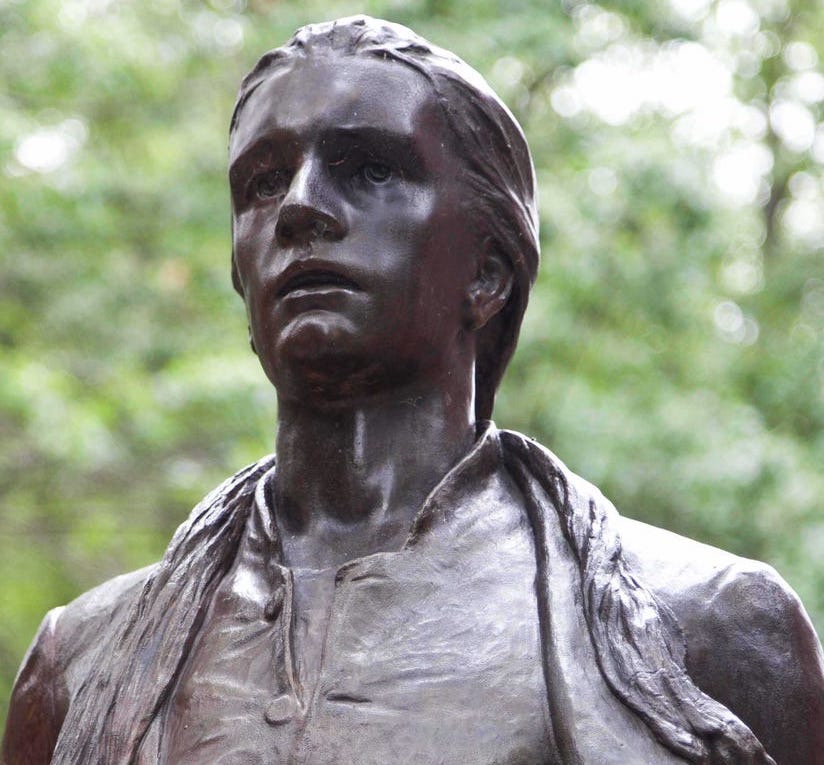
Nathan Hale
The Americans who heard Captain John Montresor tell this sad story went back to their duties. Hull got word to Hale's family, but officially there was no recognition of Hale's remarkable and dangerous service, so he remained unknown and was left unsung. No newspapers printed praises, no poets penned verses, and no official pronouncement mourned him. By all appearances, Nathan Hale's death was a waste devoid of any meaning.

For years, the only official recognition of Nathan Hale was the report of his death on September 22 as part of the Continental Army’s 19th Regiment.
But John Montresor saw something intensely moving and memorable that September morning and his telling of it that night would one day make the good lad's country grateful. In 1853, a celebration at Yale that was nominally about something else heard a poem titled "Nathan Hale's Fate and Fame," and the story gripped America's imagination. No great moment hinged on his mission, and no significant event resulted from his fulfilling it beyond the habit of keeping promises and being useful. But that alone was enough. Upon reflection, people deem it a startling contribution that gave meaning where none should have been, that shone a light in his country's darkest hour with the simple but momentous act of raising his hand, doing a dangerous job, and dying for it. Nathan Hale's willingness of heart made him courageous when there was no hope and calm as his captors relished his fate.
Montresor would go to his grave remembering that boy on that day standing on that scaffold amid the small jeering mob of redcoats. He had quietly refused to recant his loyalty to his mates. "I only regret," Nathan Hale had said, "that I have but one life to lose for my country."
Hale was an American original, young, eager, willing, impervious, a mold ready to mint a million like him. Montresor was married to an American and already knew a good deal about the people of the place, but Hale was strangely troubling because he was strangely inspiring. How many Nathan Hales were there, Montresor might have wondered. Could anyone, even with an aged military tradition and a venerable military establishment, defeat a country of them?
